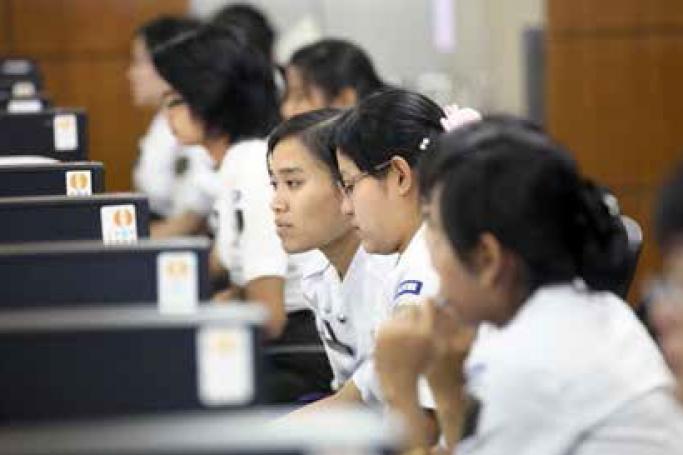In the old days it wasn’t easy to get to know Myanmar government officials. The system was designed to discourage too much fraternization with visiting foreigners.
This has changed rapidly and radically. In half-a-decade the bureaucracy, numbering about one million people, has shifted its priorities. Secrecy and hesitation previously trumped any enthusiasm for contact, creativity, initiative or risk-taking.
The big shake-up has come with the changes to Nay Pyi Taw. Once a shadowy place, ringed by obtrusive security and ordered so as to keep everyone locked in, it has become a much more free-wheeling location, accessible to anyone who braves the Yangon-Mandalay highway.
After the sudden move north in 2005, Nay Pyi Taw phobia meant many Yangon-based officials resigned when transferred to the new capital, unwilling to accept the upheaval, isolation and uncertainty.
Back then, ministries suffered from a lack of equipment and technology. There are tales of the first waves of arrivals from Yangon needing to wade through creeks to get to their desks. Other stories tell of entire government agencies with a computer, or two; legacies of the hard years of dictatorship.
Investments in new equipment and efforts to build staff competence have since gained great momentum. Many agencies have grown quickly, especially those involved with executive, legislative and electoral matters. All are tasked with ensuring that the fragile transformation of Myanmar politics goes smoothly.
At the middle and junior ranks and in technical positions, women, eager for stability and solid social status, usually outnumber men by a large proportion. Nowadays a relatively comfortable life awaits in the dormitory suburbs of the capital.
Myanmar officials also get many more travel opportunities than before. During the past few years, an increasing number of senior officials have enjoyed overseas trips, often to desirable destinations such as Europe, the United States, Australia and Japan.
In almost all cases, they return with ideas about how to improve their own management practices and the efficiency of their teams, including in the most strategic areas of foreign and domestic policy.
Many are emboldened to encourage junior staff to seek their own international experiences. An ever-growing cohort of Myanmar officials is studying abroad, with many receiving foreign government scholarships. Some are beginning to return home to apply their knowledge, contacts and worldliness in a rapidly changing political environment.
Foreigners even work in some ministries but their experiences are inconsistent. Some are shut out of key functions and kept at arm’s length from their Myanmar hosts. That must be frustrating for all involved.
Nonetheless the presence of foreigners so close to the mechanics of decision-making signals a further major transformation, and one that brings growing awareness that Myanmar will need to catch up in key respects if its bureaucracy is to adequately deal with the challenges to come.
Perhaps the biggest challenge is to craft a bureaucratic culture that empowers more junior officials and builds a democratic instinct among the bureaucracy.
It is often forgotten that in the 2012 by-elections the National League for Democracy triumphed in the four Nay Pyi Taw constituencies that were up for grabs.
Many of those votes would have come from officials themselves, hungry to learn what a more democratic system can bring. That hunger means distant perceptions of Myanmar officials as stern and uncompromising bears little relation to their evolving style.
Myanmar’s bureaucrats will continue to surprise. As a rule, the young clerks are cheerful and increasingly ambitious. Any why shouldn’t they be? They are happy to see the terrain of opportunities and choices changing before their eyes.
(Dr Nicholas Farrelly is a partner at Glenloch Advisory and a Fellow in the Bell School of Asia Pacific Affairs at the Australian National University. He has undertaken extensive research in Nay Pyi Taw).
This Article first appeared in the February 26, 2015 edition of Mizzima Weekly.
Mizzima Weekly is available in print in Yangon through Innwa Bookstore and through online subscription at www.mzineplus.com












